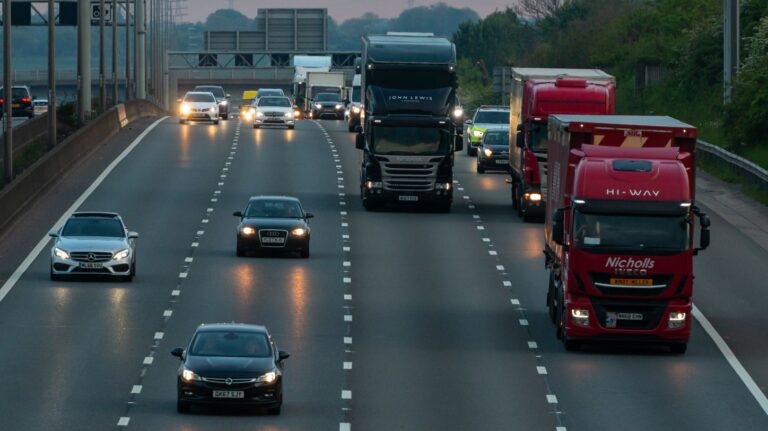The Tony Blair Institute for Global Change (TBI) has urged the UK government to replace conventional fuel duties with a pay-per-mile road pricing model to address funding gaps caused by rising electric vehicle (EV) adoption and the resulting decline in fuel duty revenue.
The policy aims to create a” fairer and more adaptable approach” to motoring taxes, aligning with the UK’s green transition.
The TBI proposal includes an introductory rate of 1p per mile for cars and vans, with heavy goods vehicles (HGVs) taxed between 2.5p and 4p per mile based on vehicle size.
In real terms, this means for someone who drives 7,000 miles a year, the charge would be £70.
With fuel duty frozen since 2011, the UK reportedly faces an estimated £30bn loss in revenue due to the shift toward EVs.
According to TBI, a nationwide road-pricing system would generate much-needed funding for infrastructure upkeep and address rising congestion, which is reportedly projected to cost the UK economy more £300bn by 2050.
The report, titled A Fairer Road: Road Pricing as a Solution to the Transport Funding Crisis, suggests the model could remain revenue-neutral by replacing planned fuel duty hikes, which would yield an equivalent £3.3bn, ensuring EVs contribute proportionally to motoring taxes alongside fuel-powered vehicles.
READ MORE: UK road pricing ‘inevitable’, suggests National Infrastructure Commission chairman
In the initial phase of TBI’s proposed scheme, mileage would be tracked during annual MOT tests, and owners of new vehicles not yet due for an MOT could self-report their mileage.
TBI believes that this system could evolve, with telematics potentially enabling dynamic pricing based on congestion, peak hours, and geography.
This evolution, modelled on successful systems in cities such as Stockholm and Singapore, could allow the UK government to set variable pricing to manage demand and optimise road use.
However, Edmund King, president of the AA, cautioned that road pricing could backfire politically if perceived as a “tax on wheels”.
King’s concerns stem from the backlash to a similar proposal in 2005, which was eventually abandoned after public resistance.
READ MORE: UK chancellor must introduce pay-as-you-drive duty on zero-emission vehicles, charity urges
TBI recommends the government emphasise reinvestment of road-pricing revenues into infrastructure and public transportation projects, directly benefiting drivers and communities to counter these concerns.
Furthermore, TBI has suggested penalties for odometer tampering and the use of telematics systems that track mileage without location data to balance implementation with privacy protection.
The report also highlights that engaging with the public early could help ensure transparency and acceptance.
Economically, TBI sees road pricing as a scalable, future-proof solution for an era dominated by EVs.
The organisation believes that, by ensuring all vehicle owners contribute to motoring taxes, the policy could prevent the risk of over-subsidising EV owners, deter excessive car use and equitably distribute tax responsibilities.
FREE: Subscribe to the monthly Road User Charging Conference Newsletter!
Advocates within government circles, such as former officials from HM Treasury, recently noted that pay-per-mile pricing is gaining traction as a viable solution to the anticipated funding gap, especially as EV adoption accelerates.
Adam Smith, a former Treasury adviser, indicated that such schemes might prevent steep income tax hikes by shifting road costs directly to users.
The DVLA, which collects car taxes on behalf of HM Treasury told GB News that any decision to introduce road pricing would be “ultimately a matter for the Chancellor of the Exchequer”.
However, ahead of the autumn budget, a UK government spokesperson said in a statement: “We have no plans to introduce road pricing.
“We are committed to supporting our automotive sector as we transition to electric vehicles in order to meet our legally binding climate targets.”
You can learn more about the key trends and challenges affecting senior decision-makers who have responsibility for user-financed transportation – including tolling, pricing and road-usage charging – across the world at Akabo Media’s global series of Road User Charging Conferences in Brussels (March 2025), Miami (April 2025), Abu Dhabi (June 2025) and Singapore (October 2025). Click here for more information!





